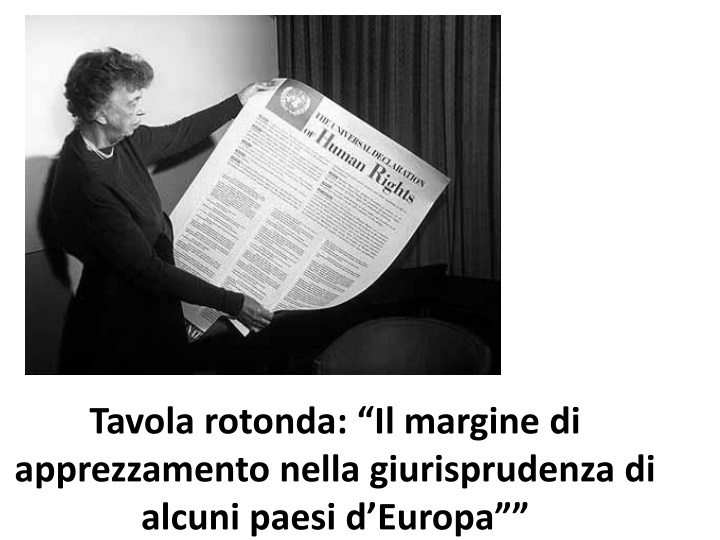
Judicial Approaches to Human Rights: A Comparative Analysis
Explore the evolution of judicial approaches to human rights in European countries, examining the British tradition, the impact of the Human Rights Act 1998, and the challenges of over-reliance on case law. Delve into the shifts in legal interpretations, from civil liberties to the European dimension, and the duty of national courts to align with Strasbourg jurisprudence. Consider the implications of legislating incompatibilities with Convention rights and the need for a balanced judicial response amid changing legal landscapes.
Download Presentation

Please find below an Image/Link to download the presentation.
The content on the website is provided AS IS for your information and personal use only. It may not be sold, licensed, or shared on other websites without obtaining consent from the author. If you encounter any issues during the download, it is possible that the publisher has removed the file from their server.
You are allowed to download the files provided on this website for personal or commercial use, subject to the condition that they are used lawfully. All files are the property of their respective owners.
The content on the website is provided AS IS for your information and personal use only. It may not be sold, licensed, or shared on other websites without obtaining consent from the author.
E N D
Presentation Transcript
Prof Jim Murdoch Tavola rotonda: Il margine di apprezzamento nella giurisprudenza di alcuni paesi d Europa
1. The British tradition civil liberties - rights as residual, and as the result of judicial decisions suspicion of codifications of rights A V Dicey Law of the Constitution (1885) international law is NOT a formal source of law unless transformed into domestic law by statute THUS the ECHR was (at best) an informal source of law
1. The British tradition under threat domestic dissatisfaction / realisation of the limitations of Dicey s approach: eg Malone v Commissioner of Police of the Metropolis (No 2) 1979 Ch 344 European dimension
2. The new approach Human Rights Act 1998 Courts must take into account Convention rights Legislation to be read / given effect in a way that is compatible with the ECHR so far as it is possible to do so Public authorities may not (generally) act in a way that is incompatible with a Convention right
2. The new approach Scotland Act 1998 [and SA 2012-2016] The Scottish Parliament may not legislate outside its legislative competence This includes provisions that are incompatible with a Convention right [or EU law] A member of the Scottish Government has no power to do any act that is incompatible with a Convention right
2. The new approach - judicial response The duty of national courts is to keep pace with the Strasbourg jurisprudence as it evolves over time: no more, but certainly no less. - Lord Bingham, R (Ullah) v Special Adjudicator [2004] 2 AC 322 Argentoratum locutum, iudicium finitum Strasbourg has spoken, the case is closed - Lord Rodger, Home Secretary v AF (No 3) [2010] 2 AC 269
3. The revised approach? Over-reliance on SBG case law has weakened the inherent dynamic of the common law Unfortunate lack of restraint on the part of the SBG Court which has exceeded its authority And this lack of restraint could lead the domestic courts to stray into policy areas that are inappropriate for judges
Lord Hoffman, Re McKerr [2004] 1 WLR 807 at para 65 What the Act has done is to create domestic rights expressed in the same terms as those contained in the Convention. But they are domestic rights, not international rights. Their source is the statute, not the Convention. They are available against specific public authorities, not the United Kingdom as a state. And their meaning and application is a matter for domestic courts, not the court in Strasbourg.
Lord Hoffmann, A v Home Secretary [2003] 1 WLR 330 Freedom from arbitrary arrest and detention is a quintessentially British liberty . It was incorporated into the [ECHR] in order to entrench the same liberty in countries which had recently been under Nazi occupation. The UK subscribed to the Convention because it set out the rights which British subjects enjoyed under the common law.
Lord Reed, R (Osborn) v Parole Board [2014] AC 1115 [t]he values underlying both the Convention and our own constitution require that Convention rights should be protected primarily by a detailed body of domestic law. The Convention taken by itself [is insufficient] to provide the guidance which is necessary in a state governed by the rule of law...
The [1998 Act] does not supersede the protection of human rights under the common law or statute, or create a discrete body of law based upon the judgments of the European court. Human rights continue to be protected by our domestic law, interpreted and developed in accordance with the [Human Rights] Act when appropriate.
Lord Justice Laws, Hamlyn Lecture (2013) the threat to this catholicity of the common law starts from the fact that these principles with a foreign ancestry, like any other principle of the common law, can only truly take their place and play their part if the law s users, its practitioners and its commentators, believe in their benign effects.
In the end the laws authority rests upon public belief the political controversies and resentments concerning Europe may undermine the confidence which thinking people ought to have in the common law s catholicity. The [Strasbourg] threat is intertwined with a resentment felt among many shades of opinion that under the pressure of the Strasbourg court the law of human rights has got too big .
Lord Sumption, Kuala Lumpur the Strasbourg court develops the Convention by a process of extrapolation or analogy, so as to reflect its own view of what rights are required in a modern democracy. This approach has transformed the Convention into a template for many aspects of the domestic legal order. It has involved the recognition of a large number of new rights which are not expressly to be found in the language of the treaty.
[the common law] may within broad limits be updated and reformulated by the courts which made it in the first place. But very different considerations apply to a written instrument like the Convention, which records not just an agreement between states but the limits of that agreement. The function of a court dealing with such an instrument is essentially interpretative and not creative.
[cases exist] in which the approach of the Strasbourg court to the [ECHR] goes well beyond interpretation, and well beyond the language, object or purpose of the instrument. In practice, it seeks to give effect to the kind of Convention that the Court conceives that the parties might have agreed today. This process necessarily involves the recognition by the Court of some rights which the signatories do not appear to have granted, and some which we know from the negotiation documents that they positively intended not to grant.
the power to extrapolate or extend by analogy so as to enlarge its subject-matter is not always easy to reconcile with the rule of law . It is potentially subjective, unpredictable and unclear. Beyond a very limited point, the reformulation of a written instrument so as to satisfy changed values since it was made is not necessarily an appropriate judicial function.
In short Over-reliance on SBG case law has weakened the inherent dynamic of the common law Unfortunate lack of restraint on the part of the SBG Court which has exceeded its authority And this lack of restraint could lead the domestic courts to stray into policy areas that are inappropriate for judges
Issues / challenges 1. Common law / statutory protection is more limited than that required by the ECHR. 2. Parliament may legislate in terms which fail to meet ECHR requirements, even when construed in accordance with common law principles of interpretation 3. Judicial review rules on standing / substantive principles may be too restrictive to meet ECHR expectations. 4. The Brexit phenomenon
We must reign in and reverse the regulation of our lives by unaccountable judges who are changing Britain's legal landscape with their judgments in the courtroom by introducing a British Bill of Rights
David Cameron, Giving power back to the people, 25 June 2009.
Its your life thats affected by political decisions and the people who make those decisions should answer to you that s why we need accountability . [i]t s why we will abolish the Human Rights Act and introduce a new Bill of Rights, so that Britain s laws can no longer be decided by unaccountable judges.
David Cameron, Balancing freedom and security A modern British Bill of Rights , Speech to the Centre for Policy Studies, June 26, 2006
the prospect of prisoners having the right to vote makes me physically ill.
Protecting Human Rights in the UK: The Conservatives Proposals for Changing Britain s Human Rights Laws (2014) Living instrument = mission creep HRA undermines the role of domestic courts HRA undermines Parliamentary Sovereignty & democratic accountability to the public
Applications: State/population Per 100,000 of population Ireland 0.6 UK Germany 1.3 France 1.7 Netherlands 1.7 Norway 2.9 0.6 Ukraine 19.1 Romania 41.5 MEAN 6.4
In actual numbers1959 2016 540 judgments involving the UK 312 at least 1 violation 138 no violation remainder: other disposals (58%) Cf France : 985 / 722 Germany 305 / 186 (73%) (61%) Netherlands 157 /88 Ireland 32/21 (56%) (66%)
UK judgments - violations Procedural 93 fair trial (excl length of proceedings) 68 liberty and security of person 29- length of proceedings 37 lack of effective investigation into loss of life Policy substantive 68- private and family life 44 discriminatory treatment 17 inhuman and degrading treatment (excl torture) 11 freedom of expression
Issues / problems with repeal of HRA 1. It is based upon a flawed understanding 2. British Bill of Rights and devolution settlements but possibility that pockets of HRA simply remain where necessary? 3. Margin of appreciation recognition dependent upon domestic legislature / judiciary reflecting SBG expectations, and this may change in light of new judicial attitudes




